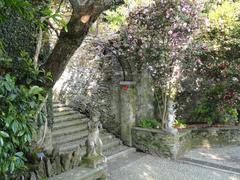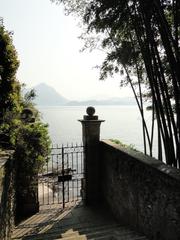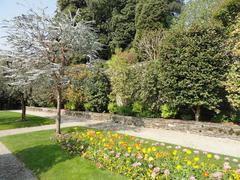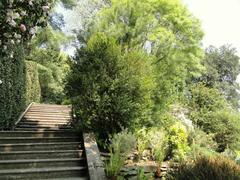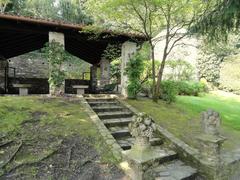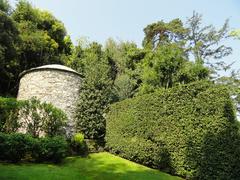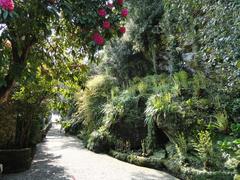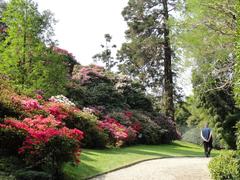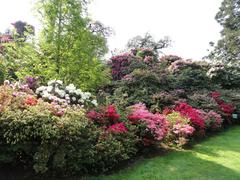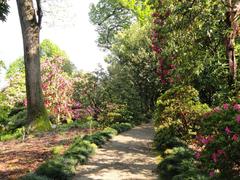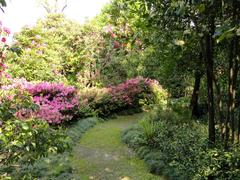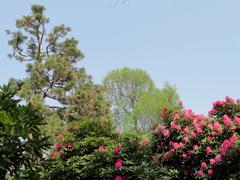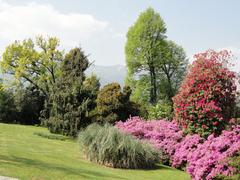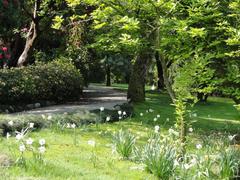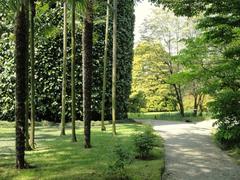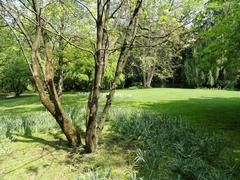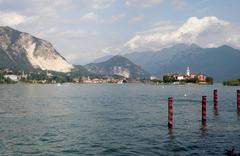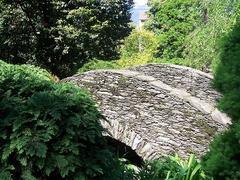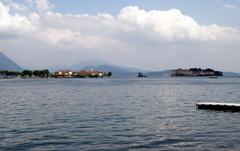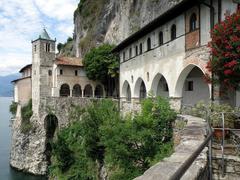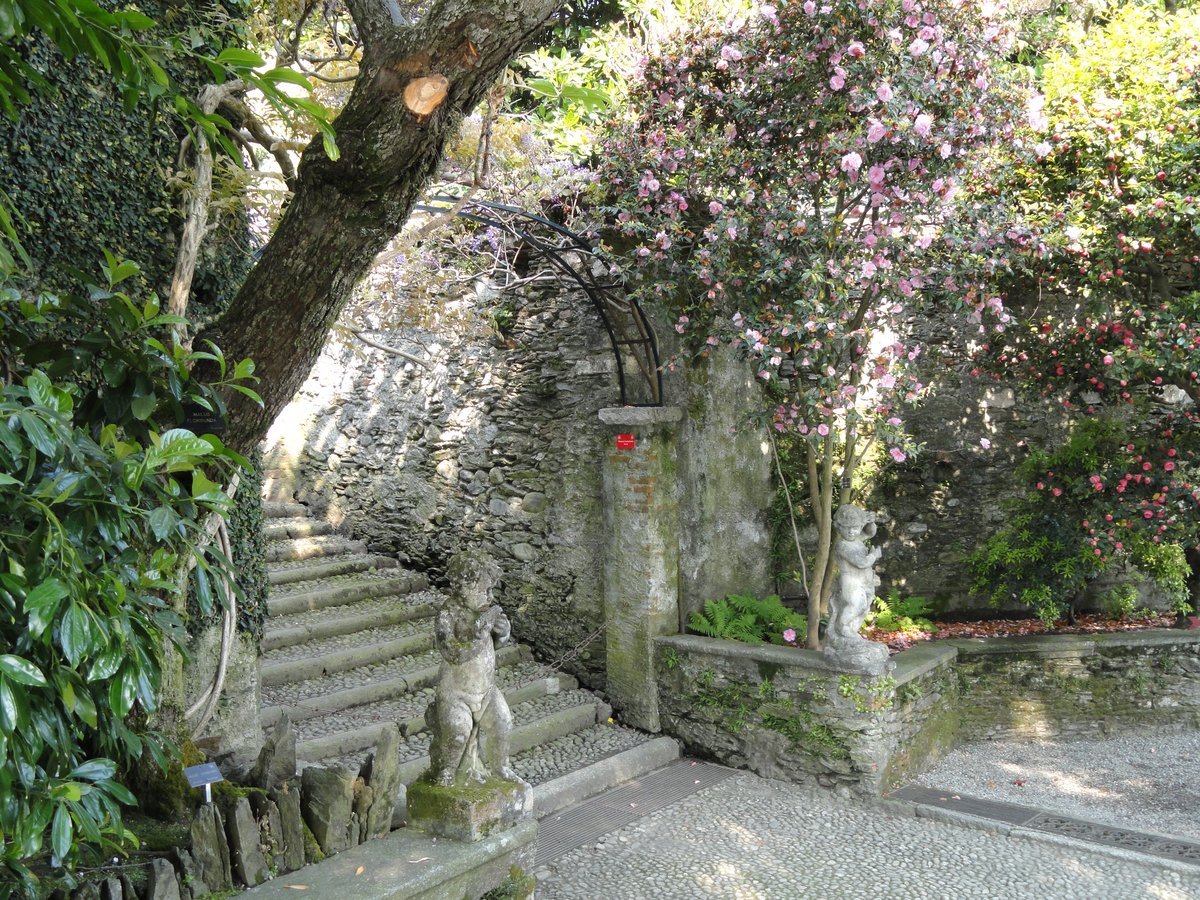
Comprehensive Guide to Visiting Giardini Botanici dell’Isola Madre, Stresa, Italy
Date: 23/07/2024
Introduction
The Giardini Botanici dell’Isola Madre, nestled on Isola Madre in Lake Maggiore, Italy, stands as a mesmerizing blend of botanical splendor and historical richness. This enchanting botanical garden, dating back to the 16th century, showcases an exquisite array of exotic plants, meticulously landscaped gardens, and architectural marvels, reflecting the grandeur of the Borromeo family who transformed it into a horticultural masterpiece. The garden’s evolution from a simple agricultural site to a renowned botanical haven is a testament to centuries of dedicated preservation and innovation. Visitors can immerse themselves in the serene beauty of camellias, rhododendrons, azaleas, and magnolias, while also exploring the elegant Palazzo Borromeo and its artistic treasures. This guide offers an in-depth look into the history, visitor information, and travel tips, ensuring an unforgettable experience at one of Italy’s most cherished destinations (Borromeo Islands, Botanical Garden).
Table of Contents
History of Giardini Botanici dell’Isola Madre
Origins and Early Development
The Giardini Botanici dell’Isola Madre dates back to the 16th century. The island was acquired by the Borromeo family in 1501, who initially used it for agricultural purposes, including the cultivation of citrus fruits and olives. Over time, the Borromeo family aimed to transform the island into a garden that would reflect their grandeur and elegance.
Transformation into a Botanical Garden
The significant transformation began in the early 19th century when Vitaliano IX Borromeo initiated the landscaping project, inspired by the English garden style. Exotic plants from around the world were introduced, facilitated by the Borromeo family’s extensive network. The garden’s design incorporated winding paths, scenic viewpoints, and a variety of flora, creating a picturesque environment.
Expansion and Plant Collection
Throughout the 19th and 20th centuries, the garden continued to expand. The plant collection grew significantly, featuring species from Asia, Africa, and the Americas. Notable additions included camellias, rhododendrons, azaleas, and magnolias, which thrived in the island’s mild climate.
Architectural Enhancements
In addition to its botanical treasures, Isola Madre is home to several architectural features that enhance its aesthetic value. The 16th-century Palazzo Borromeo, with its elegant interiors and art collections, stands as a testament to the island’s noble heritage.
Preservation and Modern Era
Efforts to maintain and restore the garden’s historical features have ensured its survival. In recent years, the garden has embraced sustainable practices, focusing on the conservation of plant species and the promotion of biodiversity.
Historical Significance
The garden reflects the evolution of horticultural practices and garden design over several centuries. It also serves as a symbol of the Borromeo family’s influence and their contributions to the cultural heritage of the region.
Influence on Botanical Gardens
The Giardini Botanici dell’Isola Madre has had a lasting impact on the development of botanical gardens in Italy and beyond. Its innovative design and diverse plant collection have served as a model for other gardens, promoting the appreciation of botanical diversity.
Visitor Information
Visiting Hours and Tickets
The Giardini Botanici dell’Isola Madre is open to visitors from March to October. The visiting hours are from 9:00 AM to 5:30 PM. Tickets can be purchased online or at the entrance. It is advisable to book in advance during peak seasons.
Travel Tips
- How to Get There: The island is accessible by ferry from Stresa, Laveno, and Verbania.
- Best Time to Visit: Spring and early summer are ideal for seeing the garden in full bloom.
- Facilities: The garden is equipped with cafes and restrooms. Guided tours are available for a more in-depth experience.
Nearby Attractions
- Isola Bella: Another Borromean island with magnificent gardens and a baroque palace.
- Villa Taranto: Famous for its extensive botanical gardens located in Verbania.
FAQ
- Are pets allowed in the garden?
- No, pets are not allowed.
- Is the garden wheelchair accessible?
- Yes, most parts of the garden are wheelchair accessible.
- Can I take photographs?
- Yes, photography is allowed, but drones are prohibited.
Conclusion
The Giardini Botanici dell’Isola Madre offers a unique blend of history, culture, and natural beauty. Ongoing preservation efforts and a commitment to sustainability ensure that it remains a cherished destination for future generations. For a memorable visit, plan your trip well and take advantage of the garden’s guided tours and scenic viewpoints.
For more detailed information, visit the official Borromeo Islands website.
Call to Action
Don’t miss out on exploring one of Italy’s most beautiful historical sites. Plan your visit to the Giardini Botanici dell’Isola Madre today! For more travel tips and updates, follow us on social media and check out our other posts.
References
- Borromeo Islands, n.d., Borromeo Turismo (https://www.isoleborromee.it/en/isola-madre/)
- Botanical Garden, n.d., Borromeo Turismo (https://www.borromeoturismo.it/en/borromean-islands/isola-madre/botanical-garden/)
- Navigazione Laghi, n.d., Navigazione Laghi (https://www.navigazionelaghi.it/)
- Educational Programs, n.d., Borromeo Turismo (https://www.borromeoturismo.it/en/borromean-islands/isola-madre/educational-programs/)
